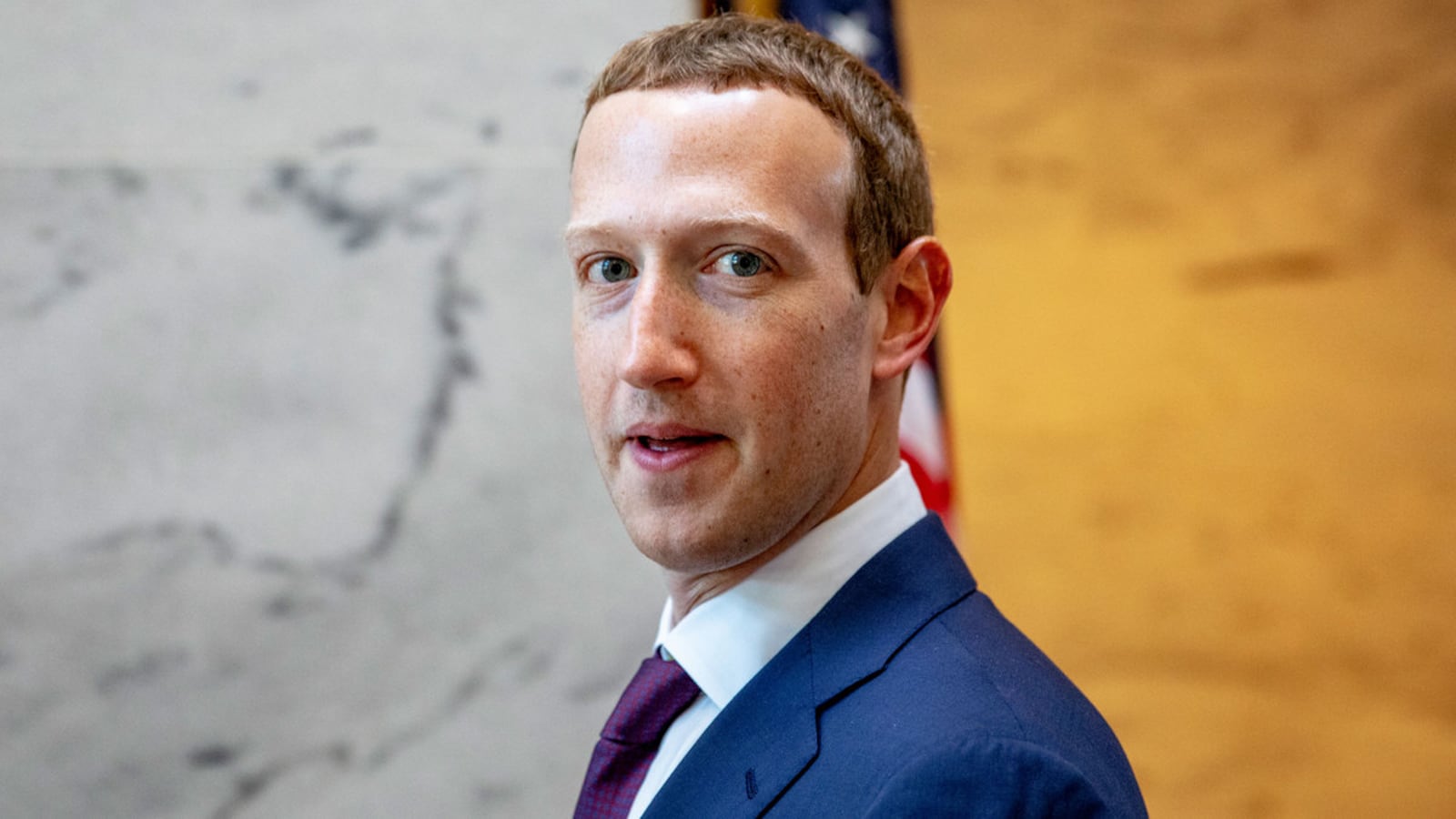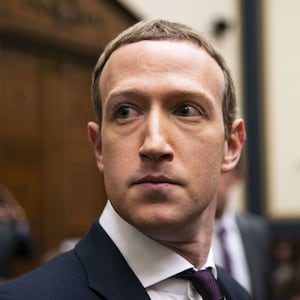When Mark Zuckerberg took to CNBC earlier this week to defend President Donald Trump’s ability to use social media to lie to the American public, he insisted that he didn’t believe Facebook and other private companies should be in the business of censorship, gravely warning that “political speech is one of the most sensitive parts in a democracy, and people should be able to see what politicians say.”
To hear Zuckerberg tell it, the decision by Twitter’s mercurial CEO Jack Dorsey to begin “fact checking” Trump’s most blatant and dangerous lies represents a grave threat to the First Amendment, one that he and his company reject. “Compared to some of the other companies, we try to be more on the side of giving people a voice and free expression,” Zuckerberg said.
It was a familiar line for anyone who’s followed Zuckerberg’s efforts over the last year to rehab Facebook’s image in the face of insurmountable evidence the platform played a crucial role in Russian efforts to undermine the 2016 election and spread white nationalist propaganda.
In an October 2019 speech at Georgetown’s Institute of Politics and Public Service, Zuckerberg made an almost identical argument, insisting that while Facebook stands for an open and democratic society, “Some people believe giving more people a voice is driving division rather than bringing us together. More people across the spectrum believe that achieving the political outcomes they think matter is more important than every person having a voice. I think that’s dangerous.”
It’s a neat, if utterly disingenuous, rhetorical trick on the part of Zuckerberg, who’s done more than perhaps any other individual to cripple the news industry over the last decade. But like Trump, Zuckerberg isn’t one to let the truth or even a basic sense of morality get in the way of turning a profit.
In fact, while there are obvious differences—Zuckerberg is an actual billionaire who’s never been credibly accused of rape, for instance—the similarities between Trump and Zuckerberg are perhaps the only surprising thing about his defense of the president.
Both earlier in their lives hosted crass beauty contests: Zuckerberg with his Facemash site, an early creation of his used to compare the relative hotness of women students at Harvard, while Trump literally owned the Miss Universe Pageant.
Both men have also benefited from one-dimensional portrayals of them in the press: Trump parlayed an image of a crass, gilded version of Baba Booey into a populist icon for angry white people across the United States.
Zuckerberg, like the other Robber Baron tech bros of the digital age, has benefited from the peculiar view of Silicon Valley as a haven for quirky, liberal-minded dudes in designer hoodies and Chuck Taylors to build a monopoly that J.P. Morgan himself would marvel at—complete with all the union busting and anti-regulatory activities he helped trail blaze more than a century ago.
Neither seems to have much compunction about dealing with brutal dictators. Trump has famously cultivated relationships with strongmen like North Korea’s Kim Jong Un to build a case for his foreign policy genius, while Zuckerberg and Facebook have directly profited from the ongoing genocide of the Rohingya people in Myanmar.
With more than 20 million of the country’s 53 million people on Facebook, the platform is a major source of news and information in Myanmar—and a tidy bit of profit for Facebook from the sale of advertisements to a largely captive audience. Anti-Rohingya groups understood Facebook’s reach, and as they began a genocidal campaign in 2016, they used the platform to foment anti-Muslim hatred among the predominantly Buddhist population. Facebook quickly became a central part of the anti-Rohingya campaign of terror, rape, and mass killings.
But despite repeated warnings from human rights groups, it wasn’t until 2018 that Facebook began taking any steps to limit its platform’s use by Myanmar military brass. By then, more than 25,000 people had died and hundreds of thousands of others had been displaced.
Likewise, Trump and Zuckerberg have not only helped cause but have profited from the collapse of the news industry. Facebook’s sketchy practice of cooking its own books—remember when Facebook video would fund journalism for the next century?—combined with its monopolistic control of advertising revenues have been primary drivers in the collapse of newsrooms across the country, even at a time when readership has grown exponentially.
And Trump’s constant attacks on reality—which Facebook has helped amplify—have turned the media’s long-standing credibility issues into a fundamental crisis of faith for the public. That, in turn, has given Trump the cover to not only enact policies like family separation, but also to loot the federal coffers for millions of dollars.
Then there are the times when their interests are directly aligned. Everyone has an opinion about Trump, and most of them are deeply held. And on Facebook, that means lots and lots of yelling. Yelling in posts. Yelling in the comments. Yelling on Facebook Live. More yelling means more opportunity to stoke anger, which for Trump means keeping his base of white supporters cranked up, a key part of his electoral strategy. So much so that his official campaign and the cottage industry of white nationalist and other far right troll farms supporting him have flooded the site with propaganda.
For Zuckerberg, that anger and those posts mean more eyeballs on his site, which in turn means more ads. And that means more money for Mark. And it’s not as if Zuckerberg isn’t aware of it—he clearly is, if his own data collection service is to be believed.
And according to The Wall Street Journal, cultivating and encouraging right-wing propaganda instead of taking even basic steps to curb the spread of lies or potential incitements to violence isn’t a bug, it’s a feature. Not because of some altruistic belief in freedom of speech, or even because the company or Zuckerberg are ideologically aligned with Trump. It’s simply a profitable business decision.
It’s tempting to see some sort of nefarious, evil plotting and scheming behind Zuckerberg’s decisions. But Mark Zuckerberg isn’t the Devil. For all his faults, the Prince of Darkness (I mean the real one) remains rooted in a system of basic morality. And while his moral compass may point towards evil, he still has one.
But Mark Zuckerberg doesn’t appear to adhere to any moral code, at least when it comes to Facebook. His only clear motivation is money. And in that, he’s exactly like Donald Trump.







